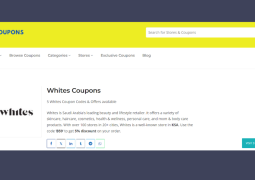All you need to know about US Sales Tax Compliance
by 24/03/2020 21:370

Sales tax is daunting for the new entrepreneurs. Rules vary from one state to another and are filled with exceptions. However, majority of this confusion just stems from knowing if your business has to pay any sales tax or how much you have to collect. Here is what you have to know about collecting, managing, and filing the sales tax. There is a lot of more to the sales tax compliance compared to sales tax. Generally, use tax that comes in 2 flavors: the consumer use tax & the seller use tax. Although all three of them are lumped together as the “sales & use tax,” there’re some important distinctions between all of them.
To rightly register the business with state then file & pay sales rightly or use tax, you have to understand what such tax is, situations that call for each kind of tax, and when you are remitting sales tax, seller use tax or consumer use tax. Continue reading to deepen your knowledge about all three.
Sales taxes in nutshell
Suppose you are selling taxable products (that most of the products are), you have to collect the sales tax from your buyers. There are certain states in the US that impose the sales taxes on such services. For the businesses with just one brick & mortar location and without any online sales, the sales tax collection, filing and reporting is easy. However, if you are operating in many states and sell products on internet, you have to collect diverse rates of the sales tax from the buyers that are located in different states where you have the sales tax economic nexus. That is where the sales tax gets very confusing.
You will need the sales tax allowance from any state where you have economic nexus before you collect the sales tax. When you get that permit, state assigns you the sales tax frequency (normally quarterly, monthly, and annually) or sales tax due dates.
Nexus
No matter whether use or sales tax applies to the transaction depends mainly on the economic nexus, connection between the seller and state that allows the state for imposing the sales tax collection compulsion on a seller. Having the physical presence in the state establishes nexus & obligation of registering with tax authorities collect and remit the sales tax.
From June 21, 2018, the businesses without any physical presence in the state will establish nexus through the economic activity in a state (called economic nexus). The businesses out-of-state normally are not liable for the consumer use tax. But, they are required to collect & remit sales tax and seller use tax.
Detrimental factors for the sales tax nexus
Even though there is not any standard sales tax program, and any standard definition for “nexus,” tax policies generally differ in a same way. Some features come in play over the board. Make sure you know such factors, and you will have a simple time to know nuances of the singular state’s law.
Where you are located?
Physical presence factor – Suppose you have the retail space, the storage space or warehouse, office, employee, and other tangible representation for your business in the state, then you are needed to register for the sales tax there.
What do you sell?
The sales tax policies will differ that depends on what kind of product that you sell. Is this the physical good or any physical service and digital service or digital item, or digital subscription? Continue reading for the specific guidance on digital products and SaaS.
How do you sell?
Some selling and marketing practices constitute nexus in certain states. Are you selling from the brick-and-mortar, website, or online marketplace? Are you using any telemarketers that will call the customers in state, or have affiliate businesses marketing the product over there?
How much do you sell?
In order, to protect your businesses from getting overtaxed (from crippling below sheer tax compliance), the US tax laws will include the tax registration threshold. The threshold is of 200 transactions in sales in current or previous calendar year (in particular state). Suppose your business’ yearly sales stay under this threshold amount, then you don’t have what is called as the economic nexus, and you do not have to worry of the sales tax.




